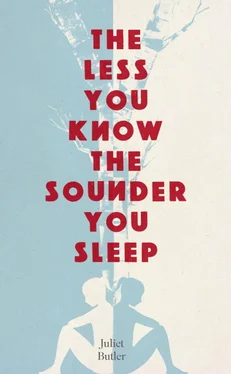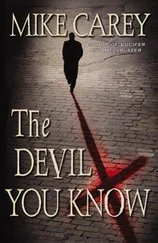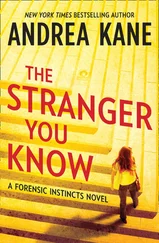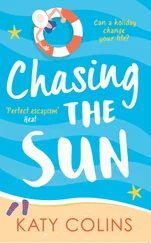Dasha was deprived of the chance to be valued in society through having a profession, but she felt that in co-authoring their memoir (even if it was filtered through the perspective of Masha) she’d been given the opportunity to do something useful with her life – to change perceptions of disability and show the Healthies that being born different was just that. Different, not Defective.
I hope that in writing this novel, I’ve given her the voice she never had in life.
Slava
Masha and Dasha treated their mentally and physically disabled friends in the same way they treated the able-bodied people they knew. There was never anything in their descriptions of their friends to suggest that they had, for example, cerebral palsy, or no arms or legs. In all my conversations with the twins I was never given the impression that Slava was anything other than a fit and healthy young man. I had no idea that he was about eighteen inches high and severely deformed. Aunty Nadya also never mentioned his physical disability.
Slava was nineteen when he died. Dasha kept all his letters, which are quoted verbatim in the book. I have been unable to track down his family.
Aunty Nadya
I kept in touch with Masha and Dasha after I returned to England in 2001, and when their death became international news in 2003 I visited Aunty Nadya, who told me the details of their final days.
I met Aunty Nadya for the last time in 2011, eight years after the death of the twins, in her one-bedroom apartment in Moscow. She told me she was dying of bowel cancer. She was completely un-self-pitying – as she always had been with the twins. In their eyes, the people who pitied them were pitiable. Aunty Nadya had no one to look after her because Little Vasya had become estranged from her in his teenage years. I offered to arrange for a carer, but she refused my help. She was admitted four weeks later to hospital where the surgeon – an old friend of hers – told her she was in remission and discharged her. She was, in fact, in the final stages of terminal cancer and died ten days later in great pain on her own in her apartment. Russian doctors do not like death statistics.
Although Aunty Nadya never told the girls she loved them, I am convinced she did. She gave them all the motherly affection she could, and, as mothers do, despite their different characters, I believe she treated them equally.
Olessya
As far as I know, Olessya (not her real name) still lives in the Sixth, but when I went to try and visit her after the twins died, I was told I needed to apply for written permission from the Ministry of Social Protection to enter the home.
Pyotr Anokhin
Anokhin worked closely with Doctor Ivan Pavlov, who for many years used dogs – and humans – to develop the theory of conditioned reflexes. Pavlov used electrical shocks, metronomes and a buzzer in his research – a methodology Anokhin would go on to use with the twins. After Pavlov’s death in 1936, Anokhin was considered to be his successor. He was interested in human behaviour and the brain from an early age but he was also fascinated by the separate roles of the nervous system and the blood system on the body’s ability to adjust to conditions such as prolonged sleep deprivation, extreme hunger and extreme temperature change. So when, in 1937, a pair of conjoined twins, Ira and Galya were born in the USSR, with identical genes, separate nervous systems and the same blood system, he removed them from their parents and took them back to his Institute of Experimental Medicine to be studied. They only survived for one year and twenty-two days. Thirteen years later, Masha and Dasha were born – a dream come true for Anokhin – who had put out an alert in all Soviet maternity hospitals following the death of Ira and Galya, asking to be informed of the birth of any more conjoined twins. He descended on Maternity Hospital no. 6 within hours. Having rid himself of their troublesome mother by telling her the girls had died, he began his studies, noting differences in behaviour from the first weeks of life. But he was treading on very dangerous ground. Not because of his abduction of the children and the ensuing experiments, but because some of his work with the genetically identical twins involved the study of their different personalities.
In June 1950, when the twins were six months old, he was denounced by Stalin’s cronies at the famous Pavlovian session. Genetics was seen as a product of ‘bourgeois capitalism’ – convenient for a Soviet government trying to engineer the perfect social utopia. A speaker at the sessions said: ‘It is an outrage that Anokhin, a disciple of Pavlov, seeks, under the guise of loyalty to his mentor, to systematically and relentlessly revise his doctrine with the rotting, idealist stance of pseudoscientific “theories” of reactionary bourgeois scholars.’
Although Anokhin defended his belief that ‘we should be permitted to suggest views on embryonic evolution and mechanisms of inheritance of characteristics’, his fate was sealed and he was sent into exile, leaving Alexeyeva and Kryuchkova to secretly carry on his work with the twins in the Paediatric Institute. He returned from exile a year later, after Stalin’s death.
When I interviewed doctors who had worked with Anokhin on the twins, they saw no suggestion at all of medical malpractice. The experiments were considered acceptable at the time, and were published and admired not only by Soviet medics but also by American and European ones.
Anokhin’s colleagues still genuinely believed that he was a hero who had defied Stalin and risked his life in the pursuit of science. They claimed he also saved the twins lives by ‘rescuing’ them, and they should have both been grateful.
I obtained a copy of Alexeyeva’s dissertation on the twins in 1998, before Putin’s clampdown, by bribing an official in the Library of the Academy of Medical Sciences (they asked for $1,000 but we ended up agreeing on $100). I also found Kryuchkova’s scientific report on their differing personalities.
After the twins left SNIP for Novocherkassk, Anokhin appears to have lost interest in them. He did, however, publish an article in Life Magazine in 1966 when they were sixteen years old, describing how they had been taken in by doctors at birth who, he claimed untruthfully, were still caring for them in Moscow and who ‘lavished affection’ on them. He also mentioned that he knew who their parents were, that they had brothers, and also that they were physically able to conceive and give birth – all answers to questions that had been torturing Dasha for years. He said he envisaged that they would be in need of psychiatric help as they grew older, but of course none was ever forthcoming.
Defectives
Dasha was, for most of the twins’ lives, the victim in their relationship, but the twins were also both the victim of Stalinist science, and of the clear-cut division in Soviet society between Defectives and Healthies.
Defectology was a science adopted soon after the creation of the USSR and was concerned with the study of physically and mentally handicapped children with a view to rehabilitating them. ‘Defective’ children were initially categorized as being either physically, mentally or morally defective. Rehabilitation took the form of taking them away from the parents or charities who had traditionally cared for them and sending them to State organizations to be brought up by trained defectologists. However, as the myth of the Soviet Union being the ‘best of all possible worlds’ grew, these children were increasingly abandoned and isolated – dumped, as Olessya put it, on to the compost heap of the Soviet garden. In 1980, when the Summer Olympic Games were held in Moscow, a British journalist asked the Soviet Olympic Committee if they would also be hosting the Paralympics. He was firmly told: ‘There are no invalids in the USSR.’
Читать дальше
Конец ознакомительного отрывка
Купить книгу












